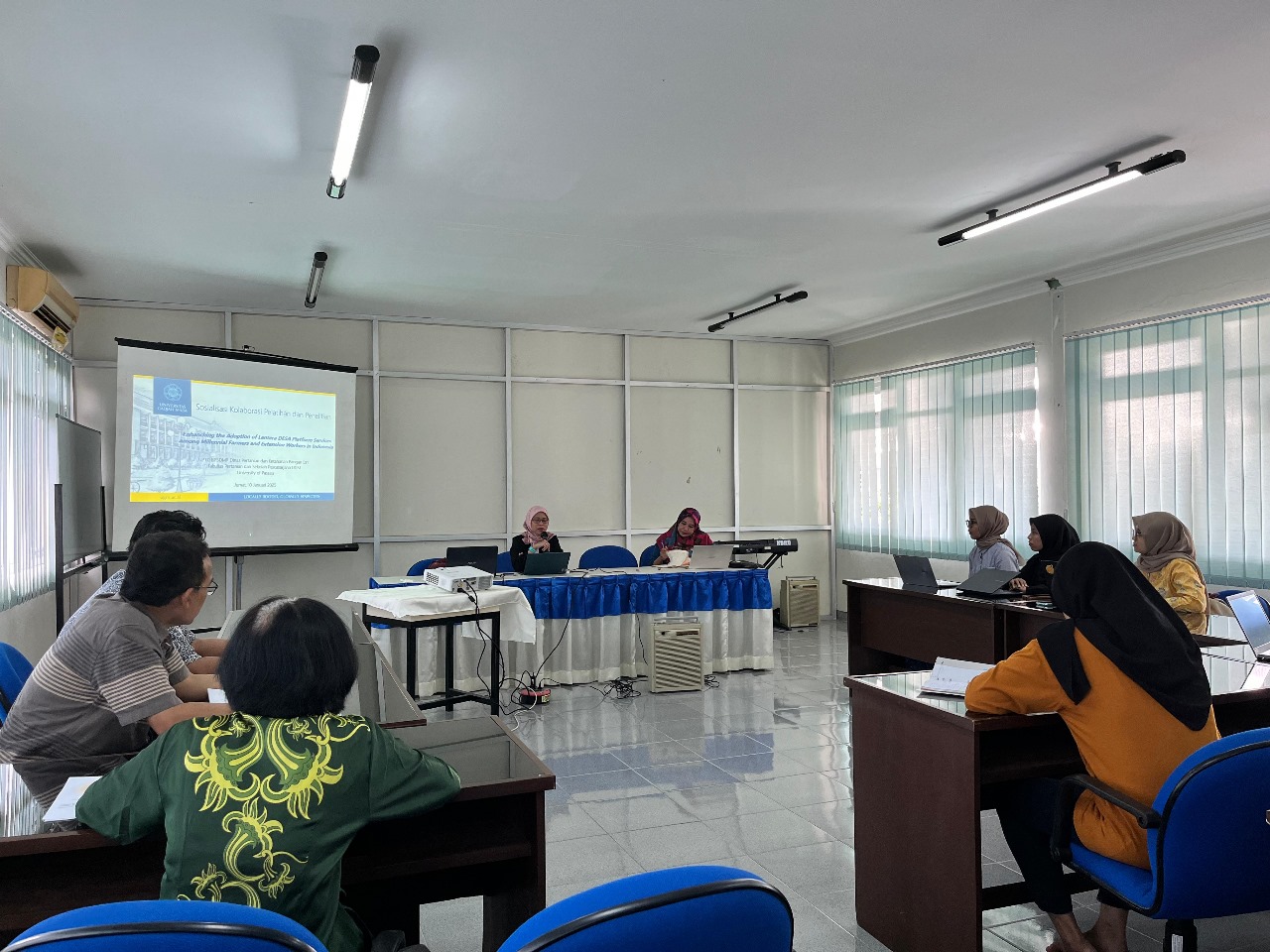
Lentera Desa, through the Community Service Program of the Faculty of Agriculture Universitas Gadjah Mada (Faperta UGM), successfully held a digital agricultural extension content creation training on Tuesday, 7 January 2025. The event was attended by agricultural instructors and facilitators from the Agricultural Training Center (Bapeltan) of Central Java, demonstrating their commitment to enhancing extension skills in the digital era.
The training focused on digital content creation techniques, ranging from video shooting to editing using the CapCut application. The guest speaker, Maman Agosto, a practitioner lecturer in audiovisual media at Faperta UGM provided practical guidance and useful tips for producing engaging and informative content.
Participants showed great enthusiasm and attentively followed each session. They recognized the importance of digitalization in agricultural extension, especially in reaching farmers and communities more effectively.
“This activity is very beneficial for us to understand how to utilize technology in extension work,” said one of the participants.

The training was also supported by Bapeltan Central Java, which played a role in organizing the event. This support reflects strong synergy between academic institutions and government agencies in strengthening human resource capacity in the agricultural sector.
“We hope this collaboration goes beyond this training and continues to enhance the quality of agricultural human resources in Indonesia,” added Opik Mahendra, S.P., M.Sc., Head of Bapeltan Central Java.
Through this training, Lentera Desa aims to help prepare a new generation of agricultural extension workers who are more responsive and adaptive to technological developments, thus contributing more significantly to agricultural development and food security in Indonesia.
This initiative marks a strategic step in integrating digital technology into agricultural extension practices, bringing positive impacts to farming communities across the country.
It also reflects Faperta UGM’s ongoing commitment to supporting Indonesia’s development by contributing to the achievement of the Sustainable Development Goals (SDGs), especially SDG 1: No Poverty, SDG 2: Zero Hunger, SDG 4: Quality Education, SDG 8: Decent Work and Economic Growth, and SDG 17: Partnerships for the Goals.
Written by: Rani Nur Rochim, Ghorizatu Shofra
Edited by: Desi Utami
